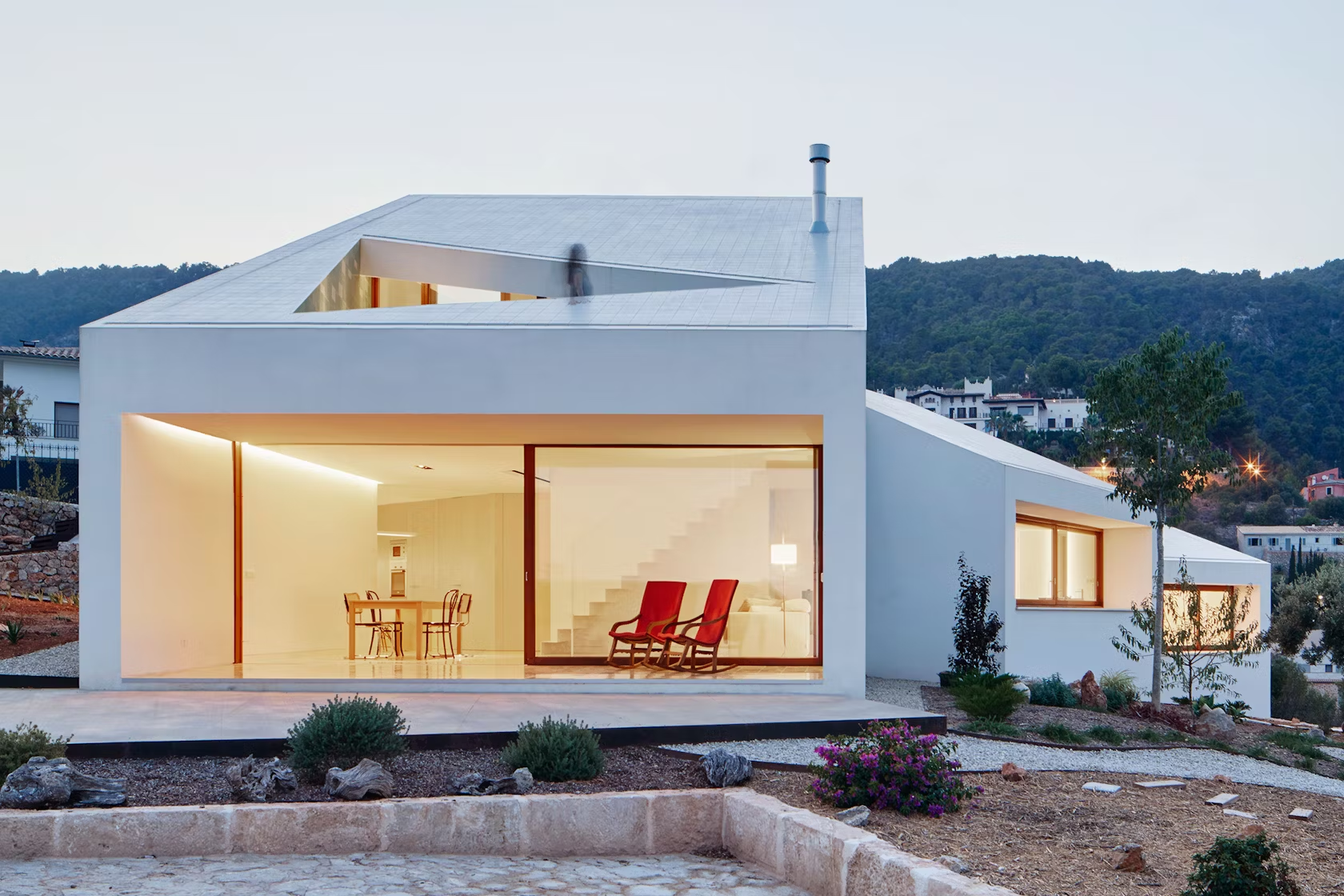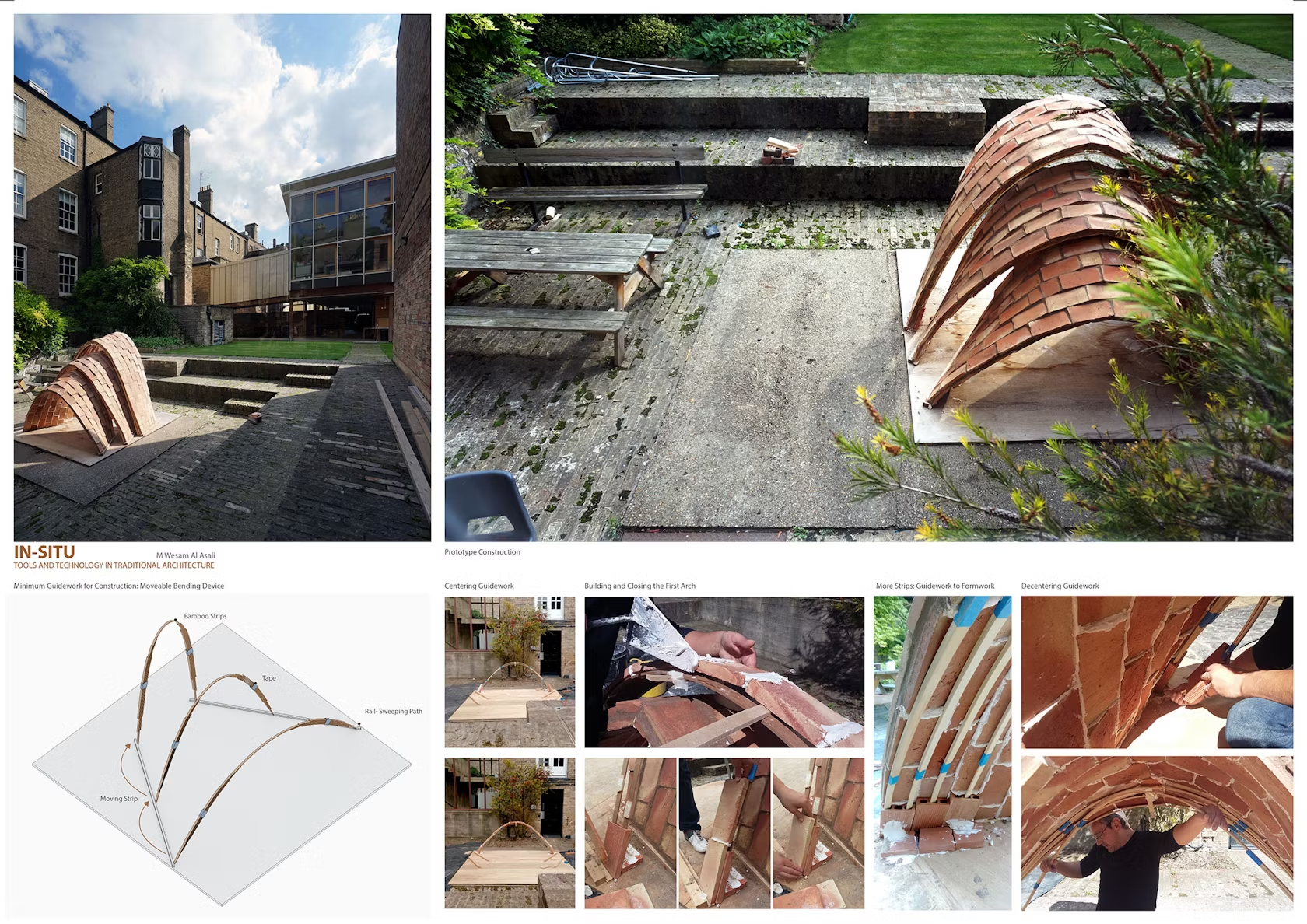From a passive house in Mallorca to a pizza restaurant in San Sebastian, six projects won or garnered honorable mentions in the 15th annual Tile of Spain Awards, presented to architecture, interior design and student projects that deftly incorporate Spanish tile. But the winners walked away with more than recognition: The architecture and interior design category winners each received a monetary prize of 17,000 euros, while the student (or Final Degree Project) winner received 5,000 euros.

Two Homes in Oropesa (Toledo)
In the architecture category, the winner was “Two Homes in Oropesa (Toledo)” in which Paredes Pedrosa Arquitectos mastered an architectural intervention within a historical context using ceramic tile. This renovation of adjacent houses called for a higher roofline underneath existing historical brick arches, repair to damaged walls that were heritage-protected and re-facing of an adjoining courtyard and upper-level bridge.

Two Homes in Oropesa (Toledo)
Receiving an honorable mention in the architecture category, “MM House, Palma de Mallorca” is a Passivhaus residence that, with its complex geometric volumes nestled in a sloping terrain, boasts strategic solar orientation and views of the sea, private gardens and Bellver Castle. The project is particularly stunning thanks to its sloping roofs covered in stark white 15-centimeter-square ceramic tile. Not only do the tiles allow for easy cleaning, they facilitate rainwater collection for the house to reuse.

MM House, Palma de Mallorca

“Taba,” designed by Ibon Salaberria, snagged the prize for interior design. Part of the International Center for Contemporary Culture in San Sebastian, this venue rotates between functioning as a coffee house, wine bar and pizza restaurant. A universal one-size-fits-all detail is the palette of 10-centimeter-square ceramic tiles. Here, the designer “draped” them as if they were rugs resting on furniture and partition elements, overflowing onto the floors.

Taba

The honorable mention in interior design was “Casa#77” in Pamplona. Raúl Montero Martínez and Emilio Pardo Rivacoba treated this tiny 51-square-meter (550-square-foot) apartment with all light color and materials palette, including whitewashed wood and large-format white subway tile to visually expand the spaces.

Casa#77
The awards program’s Final Degree Project category recognizes projects — in which ceramic tiles play a central role — conceived by architecture students. This year the panel awarded “In-Situ: Tools and Technology in Traditional Architecture” by M Wesam Al Asali from the University of Cambridge. Addressing the current issue of Syrian refugees, the project attempts to devise self-built transitional housing for displaced persons using local materials and currently trending thin-tiles in vaulted forms.

In-Situ: Tools and Technology in Traditional Architecture



San Pablo CEU University student Belén Collado González received an honorable mention for “Como agua de mayo,” a water canal system of sorts.

Como agua de mayo
This year’s judges included Elisa Valero (Granada School of Architecture), Iñaqui Carnicero (Cornell University, Spanish Pavilion at XV Venice Biennale), José Milá (RED) and architects Gonçalo Byrne, Nuno Brandão Costa and Ramón Monfort.




